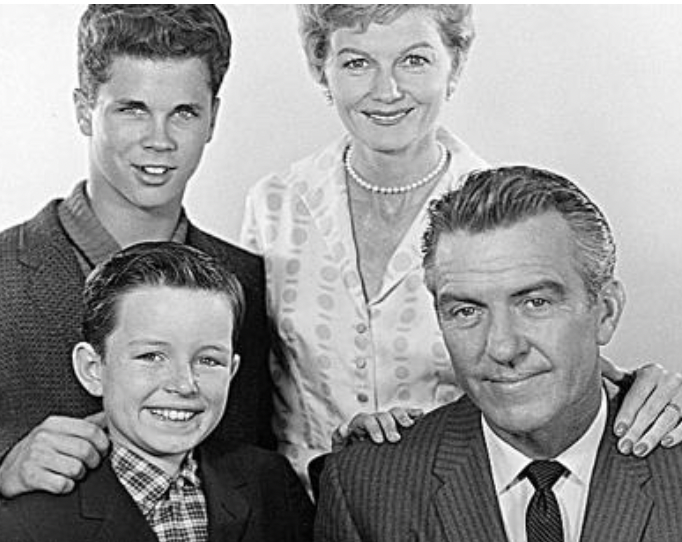What Defines A “Good” Kid?
The Price Of Perfection
Early in my counseling career I had the opportunity to work with a young woman in her late 20’s. She sought counseling due to feelings of depression, low self-esteem, and the belief that she was inadequate as a woman, wife, and mother. She felt like giving up on all of it.
In discovering more about this young lady, her description of her family of origin sounded like something from the Cleaver family in the 60s TV show. Dad was kind and caring. He had a great work ethic and glowing reputation with his employer, and he was very good at maintaining a healthy life-work balance. He was a deacon at the local church and participated in the spiritual development of each of his three children, now all adults with their own families.

My client was the youngest of three children. All were raised with a good balance of ambition and groundedness. The older sister was a schoolteacher with her mom, and arguably they were best friends. Her life, marriage, family, and home were a veritable duplication of her mom and dad’s – ideal in nearly every way.
Her brother was very popular with everyone around him. He was a high-level athlete who was lauded since childhood by the small community they lived in. He received much of the praise and accolades of the family and was the kind of young man every family dreamed they could raise or that their daughter would marry.
Then there was my client – a committed wife, mother, schoolteacher, church volunteer, and friend. Very unassuming and faithful. But in her mind, she was just not enough. She saw herself as a disappointment when comparing herself to her parents and siblings. And she assumed others perceived her in the same way. No matter how hard she tried, she never seemed to get the kudos that her sister and brother did. And regardless of encouraging words her husband spoke into her, she still assumed she could never measure up to the woman, wife, and mother her family expected her to be. She was overwhelmed by the fear of disappointing them.
Did her parents impose these shame messages upon her? Certainly not. At least not overtly or knowingly. Nevertheless, this young woman was trapped in a prison of fear and shame. Just because there was no specific individual or shame message or trauma to attribute this to, it was nonetheless very real in her life. Yet to speak of it, she felt enormous guilt because of a false belief she had internalized that told her, “I need to be thankful for how wonderful a family I’ve been blessed with.”
So, it was not uncommon for her to share her honest feelings with me, then in the very next breath undermine her emotions with justification of why she was wrong and ungrateful for having those feelings. She was in bondage to a spiral of guilt and shame that she saw little hope of ever escaping. And it had become like an emotional cancer inside of her.
Just Trying to Raise Good Kids
As adults, we may play a part in another’s internalizing of shame messages, many times without being fully aware. This is most often a result of invalidation of the child’s natural, innate expression of their emotional needs.
Child: “I want to be a doctor when I grow up.”
Adult: “At the rate you’re going, you’ll be lucky to graduate high school.”
Child: “Can I help make dinner?”
Adult: “Get out of the kitchen before you mess something up.”
Child: “I’m really sad my best friend moved away.”
Adult: “You have other friends. Don’t let that bother you.”
Child: “Our house is just five blocks down from the school.”
Adult: “You’re wrong. It’s five and a half if you count the parking lot.”
Child: “Do you like the picture I drew for you?”
Adult: “It’s hideous. I can’t even tell what it is.”
Child: “I’m finished mowing the yard.”
Adult: “What part of putting the mower away did you not understand?
Child: “Can I ask you a question about my homework?”
Adult: “Don’t you ever interrupt me when I’m reading.”
Child: “Will you be at my ballgame tonight?”
Adult: “You know I have to work. You want to eat, don’t you?”
Many would say that these adults’ responses were necessary to teach the child the difference between “right” and “wrong,” “good” and “bad.” Verbal punishment is common in almost every home and school. It relies on shame as the deterrent, in the same way that spanking relies on pain. For over a century, our society has endorsed shaming as one of the most common methods used to regulate children’s behavior, with the underlying false belief that this is how to raise “good” kids.
———-
Soul health and spiritual maturity cannot be separated. Our counselors are ordained Christian ministers as well as certified and licensed Christian counselors. We are able to help you experience freedom from shame, anxiety, depression, or marriage / relationship conflict with methods that are purely Christ-centered. Please click on this link to learn much more about how our ANXIETY COUNSELING can help you become a more authentic follower of Christ, and help you find freedom from identity dependence.
Life Training offers convenient sessions at our office in Louisville, Kentucky, as well as online counseling via Zoom or FaceTime. Our non-profit counseling practice has an outstanding track record for over a decade helping men and women, individuals and couples who are ready to move beyond anxiety, depression, and conflicts in marriage or other relationships find hope and healing in their lives. Contact us today at 502-717-5433, or by email at drdave@lifetrainingcounseling.org
